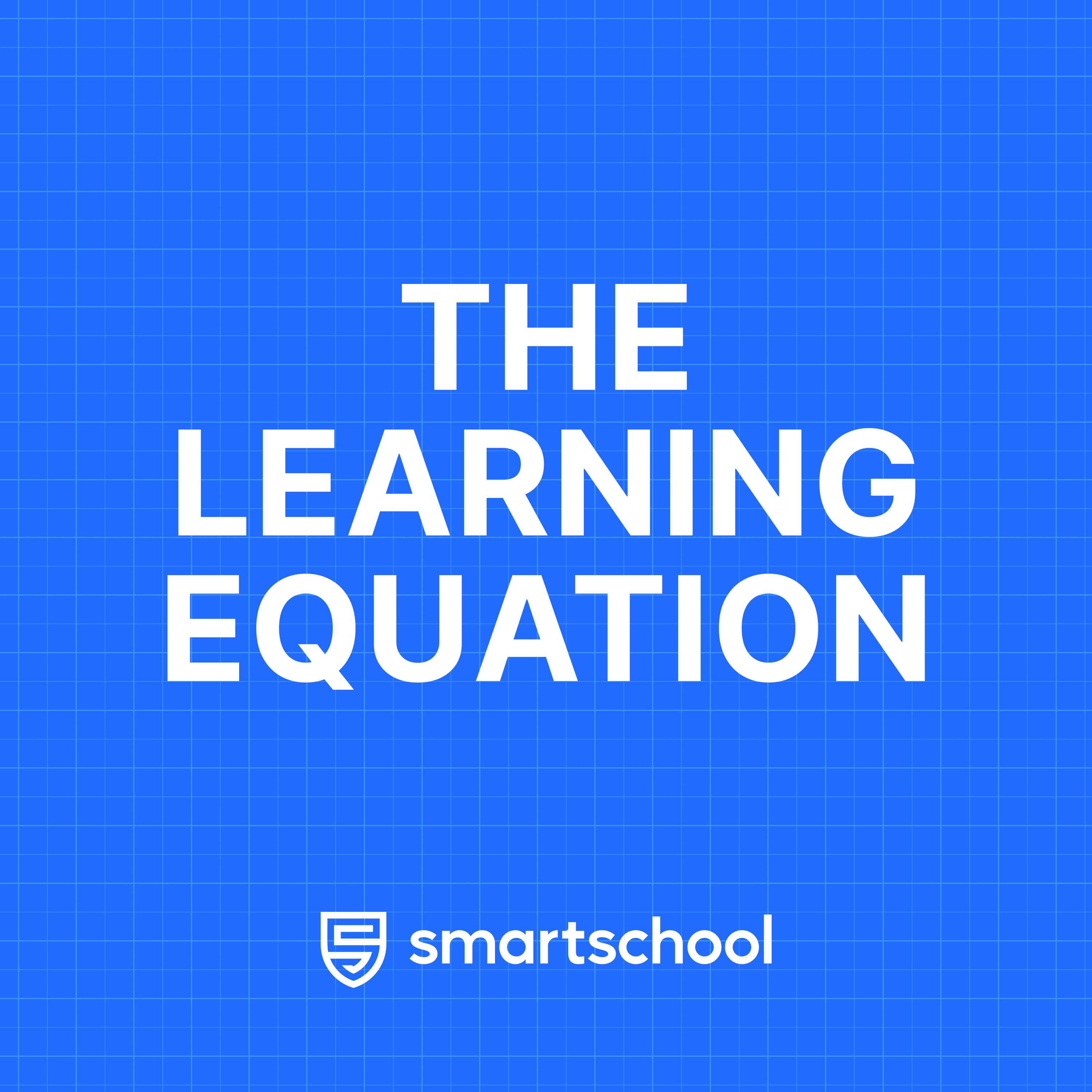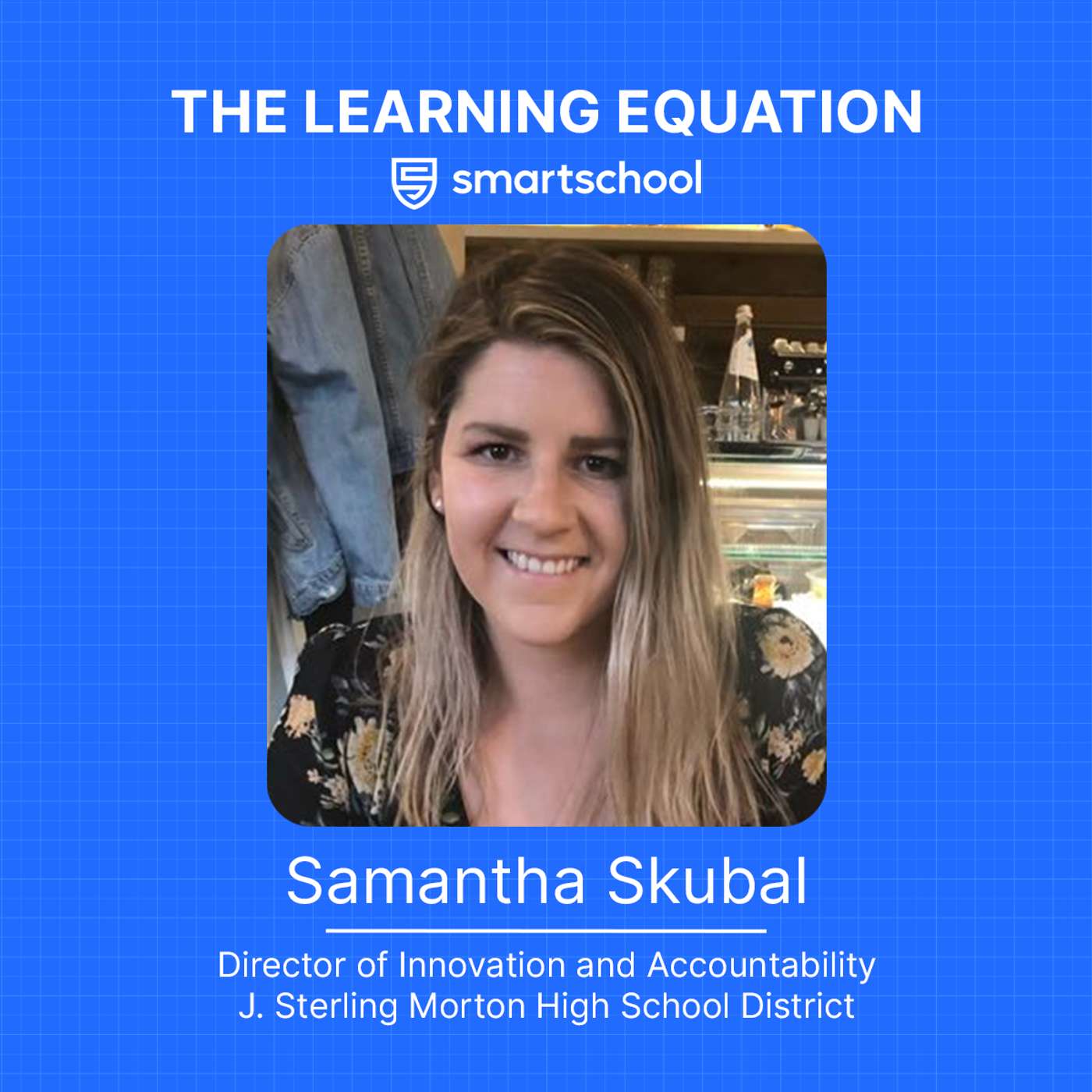The Learning Equation

The Learning Equation
Podcast Description
The Learning Equation is a show about the evolving science—and art—of how we learn. Each episode explores the intersection of education, technology, and equity, featuring voices from classrooms, research labs, and the communities they serve. Whether you're an educator, innovator, or lifelong learner, this podcast unpacks the tools, ideas, and people reshaping the future of learning.
Podcast Insights
Content Themes
The podcast explores the evolving landscape of education, focusing on themes such as education equity, the impact of technology in classrooms, and innovative teaching strategies. Episodes include discussions on data-driven decisions in education, empowering teachers with AI, and transforming math instruction to enhance educational outcomes.

The Learning Equation is a show about the evolving science—and art—of how we learn. Each episode explores the intersection of education, technology, and equity, featuring voices from classrooms, research labs, and the communities they serve. Whether you’re an educator, innovator, or lifelong learner, this podcast unpacks the tools, ideas, and people reshaping the future of learning.
Welcome back to SmartSchool! In this episode of The Learning Equation, host Danelle sits down with Samantha Skubal, Director of Innovation and Accountability at J. Sterling Morton High School District 201 in Cicero, Illinois. With a district that serves over 8,000 students, most of whom come from underserved backgrounds, Samantha shares how her team is reimagining what’s possible in public education.
In this inspiring conversation, Samantha unpacks how Morton blends forward-thinking innovation with rigorous accountability systems. From launching in-house tech support programs powered by students to building inclusive, teacher-led PD models like Festival Ignite and classroom expeditions, Samantha shows what it takes to make change stick. She dives into the district’s transition to skills-based instruction, their thoughtful use of data for reflection, not punishment, and how Morton is addressing chronic absenteeism with flexible learning models, such as Subjects.
We also gain insight into how the district remains nimble in the face of challenges, from being the lowest-funded high school district in Illinois to supporting a student body that’s over 85% current or former English language learners. If you’re passionate about student equity, teacher leadership, and designing systems that work for real kids in real communities, this episode is a must-listen.
Timestamps:
00:00 Blending Innovation with Accountability
02:11 Building Shared Ownership and Cultural Buy-In
04:38 Festival Ignite & Teacher-Led PD
07:32 Designing Instructional Expeditions
12:17 Supporting New Teachers with Bootcamps & Mentorship
18:18 Using Walkthrough & Performance Data Meaningfully
23:33 Building a Culture of Feedback & Trust
29:44 Providing Tech Equity for Underserved Students
32:19 The TSI Class: Student-Powered Tech Support
34:38 Why Morton Chose Microsoft Over Google
38:04 Authentic Assessment Through Formative
40:34 Shared Leadership in Piloting Initiatives
43:33 Supporting Students in Algebra & Math Equity
47:16 Skills-Based Instruction to Address Absenteeism
50:56 Geographically Fluid Learning with Subjects
52:20 Centering Tier 1 Instruction & Inclusive Practice
54:55 Why Students and Staff Make Morton Unforgettable
Connect with Samantha Skubal
LinkedIn:https://www.linkedin.com/in/samantha-skubal-0657486a
District Website: https://www.morton201.org
Connect with Host Danelle Almaraz
LinkedIn: https://www.linkedin.com/in/danelle-almaraz
Website: joinsmartschool.com
Like what you heard? The Learning Equation brings you real stories of transformation in education—one innovative system, one courageous leader, one classroom at a time.

Disclaimer
This podcast’s information is provided for general reference and was obtained from publicly accessible sources. The Podcast Collaborative neither produces nor verifies the content, accuracy, or suitability of this podcast. Views and opinions belong solely to the podcast creators and guests.
For a complete disclaimer, please see our Full Disclaimer on the archive page. The Podcast Collaborative bears no responsibility for the podcast’s themes, language, or overall content. Listener discretion is advised. Read our Terms of Use and Privacy Policy for more details.